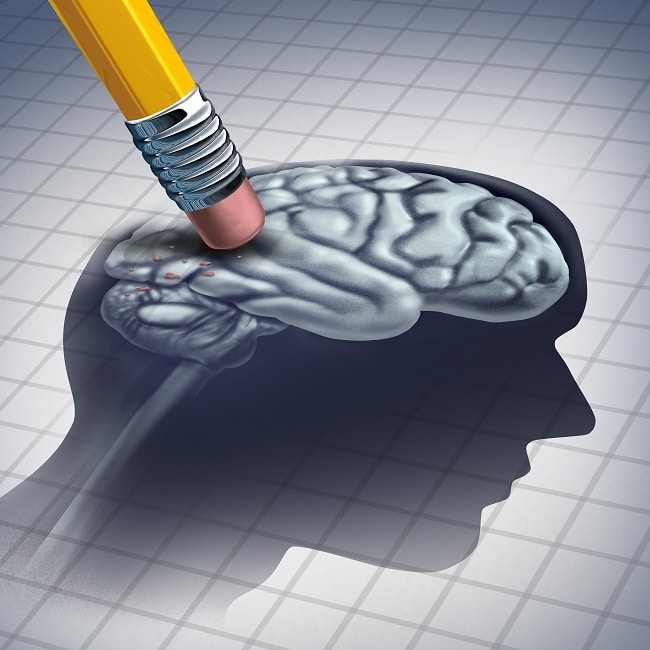Over 850,000 people are suffering from dementia in the UK, and this figure is expected to rise to over 1 million by 2025. It’s also predicted that 225,000 will develop dementia this year – one person will be diagnosed every three minutes. Dementia is an umbrella term for a progressive and degenerative brain disease, and has over 200 different subtypes.
The five most common types of dementia are:
- Alzheimer’s disease
- Vascular dementia
- Dementia with Lewy bodies
- Frontotemporal dementia
- Mixed dementia
What is dementia?
The human brain is made up of nerve cells (neurones) that send messages as a way of communicating with each other. Dementia damages the brain’s nerve cells, which means that messages can’t be sent to and from the brain effectively, preventing the body from functioning normally.
How common is dementia?
According to the NHS, there are approximately 850,000 people with dementia in the United Kingdom. As longevity rates continue to increase, so is the number of reported cases. This is because dementia is more prevalent to older individuals. The NHS also estimates that there will be over 1 million people with dementia by 2025.
How is dementia diagnosed?
To start your diagnosis process, you need to visit a GP. They will run a preliminary check and ask you questions about how you manage your daily activities. To ensure all other possible causes of memory loss are ruled out, the GP may also organise blood tests.
If your symptoms are mild, the GP may refer you to a specialist diagnostician, like a neurologist or a psychiatrist who specialises in old-age conditions. They too may request additional tests like brain scans or complex memory tests.
Following these assessments, you will typically receive your diagnosis and receive treatment if needed.
What Are The Effects of Dementia On The Brain and Everyday Life?
The impacts of Dementia and Alzheimer’s on Activities of Daily Living (ADL) make it difficult for those with the disease to complete simple activities that we often take for granted, such as bathing, doing laundry or cleaning. It is important to remember that not every person suffering from dementia will look dishevelled and unkempt, and different stages of the disease will alter the way in which the person in question will complete the task.
Why does dementia have an impact on everyday life?
Because it’s a progressive and degenerative brain disease, the effects of dementia impede messages that are transmitted in the brain. These messages help people execute day-to-day activities that we often see as mundane and take for granted. Here are the following functions that dementia affects, and the ADL this alters.
Executive Functioning
Dementia affects a person’s executive functioning, making it challenging for them to complete simple tasks, and the steps that go into them, such as having a shower or getting dressed. All of these day-to-day tasks have a sequence of steps, which is why it isn’t uncommon to see people wearing underwear over their trousers.
Dementia impedes the brain’s ability to sequence, plan and organise multiple-step activities. For those who want to continue living at home after their dementia diagnosis, assisted-living carers are a great way to help you maintain your independence in the comfort of your own home. Domiciliary Home Care Services for dementia patients means that day-to-day living activities such as bathing and getting dressed will be much easier, as there is added support.
Memory
Memory loss is one of the most renowned symptoms of dementia, with both long-term and short-term issues across the board. During the early stages, you may forget where you grew up or how to make a cup of tea and sometimes how to perform ADL tasks. Older people living with dementia often battle memory problems when carrying out the simplest of tasks, such as putting on clothes.
Having a live-in carer support with day-to-day activities for dementia patients who might struggle can help keep their independence and stay in the comfort of their own home.
Judgement and attention
Due to the lack of signals being sent around the brain, judgement, attention and decision making are notably affected. This can be something as simple as choosing to turn the heating on during the middle of winter, or deciding that you’re going to the shop in the middle of the night. This lack of judgement and attention can also be quite dangerous for the person in question, and others around them – for example, they might leave the oven on or forget to blow a candle out. Domiciliary care and night care can help dementia patients with their judgement, as a live-in carer or visiting carer may help guide them to make safer decisions, whilst allowing them to keep their own independence.
Behavioural and psychological symptoms
Many family members find that the behaviour of their loved ones has changed in the later stages of dementia. In some instances, they find their loved ones resist any help or assistance with day-to-day activities, further complicating things. Specialist care services from professional dementia and Alzheimer’s carers will help to alleviate this.
How can family members help dementia patients with everyday living activities?
- Stay calm
- Give one direction at a time
- Prioritise what is important
- Give day-to-day tasks extra time to decrease stress
- Use humour (appropriately)
- Get to know the caregiver and build a good rapport
- Take a break if it’s not going well and try again later
- Practice the activity in the same routine every day

